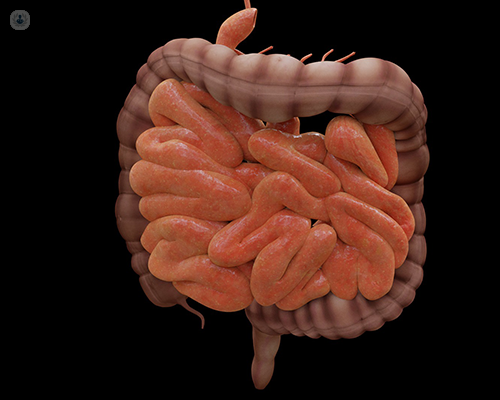Anal fistulas: causes and healing
Written in association with:If you develop an anal fistula, it means you have an abnormal pathway between the inside of the anus and the skin around it. Sometimes they can be left to heal on their own but other times, a variety of treatment may need to be considered.

What is an anal fistula?
An anal fistula is a small tract (like a pathway or tunnel) between the inside of the anus and the skin around the anus. Sometimes, it occurs in the lower rectum, which is the part of the lower intestine that connects the colon and anus. The majority of patients who develop a fistula will only have one single fistula, but it is possible to have more than one.
The fistula tract normally contains small traces of stool. This can lead to chronic infection and discharge of small amounts of pus, and it can sometimes lead to the recurrent formation of anal abscesses, which are infected, pus-filled cavities.
What are the most common causes of an anal fistula?
Most anal fistulas are the result of a previous abscess around the anus. Within the anal canal, there are a number of small glands that help to lubricate the anus and allow stool to pass with ease. If these glands become blocked, an abscess can develop.
An abscess will either burst and drain of its own accord, or it may require surgical drainage. In either case, an anal fistula can be left in place after the pus has drained. It’s important to remember that not all abscesses result in a fistula. In fact, between 15% and 50% of people with an abscess will develop a fistula.
What are the less common causes of anal fistula?
Less common causes of a fistula formation include:
- Inflammatory bowel disease, in particular Crohn’s disease, where up to 15% of patients will develop a fistula.
- Trauma, including childbirth.
- Radiotherapy treatment to the pelvis (e.g. for rectal, cervical or prostate cancer).
- Some sexually transmitted diseases.
- Tuberculosis
- Bowel cancer
- Diverticular disease
Who is most at risk of developing this?
Patients with Crohn’s disease are most at risk of developing an anal fistula. However, only a small number of fistulas that we see in clinics are due to Crohn’s disease.
Can an anal fistula heal on its own?
Anal fistulas can sometimes heal on their own. Surgery, however, is commonly required. Where the fistula does not involve much of the muscles that control continence (the ability to regulate bowel movements), the fistula can be opened up and left to heal; this has a very high success rate. More complex fistulas, which involve a lot of the muscles for controlling bowel movements, may require several stages of treatment to fully heal.
The first stage often involves placing a rubber or non-absorbable thread (medically referred to as a seton) through the tract to encourage the removal of any faecal debris. There are then a number of different treatment options including
- Advancement flaps
- The LIFT (ligation of the intersphincteric fistula tract) procedure
- Fistula plugs
- Excising the tract as a core.
The treatment options used will depend on the nature of the fistula.
For patients with inflammatory bowel disease, medical therapy known as “biologics” can often help fistula tracts to heal.
Visit Mr Lovegrove’s Top Doctors profile to book a consultation and to address your colorectal and surgical needs.


